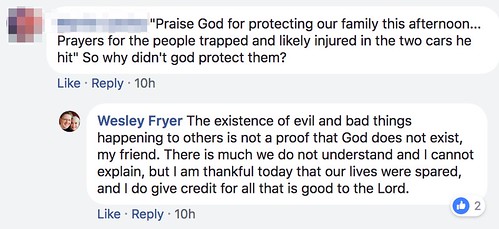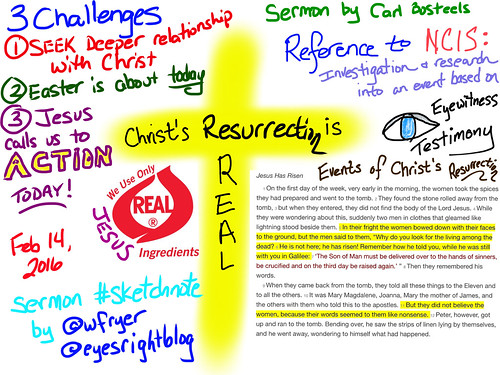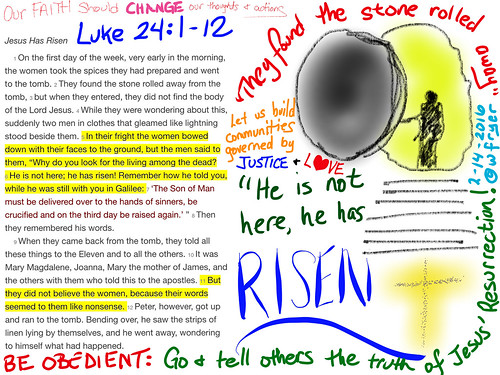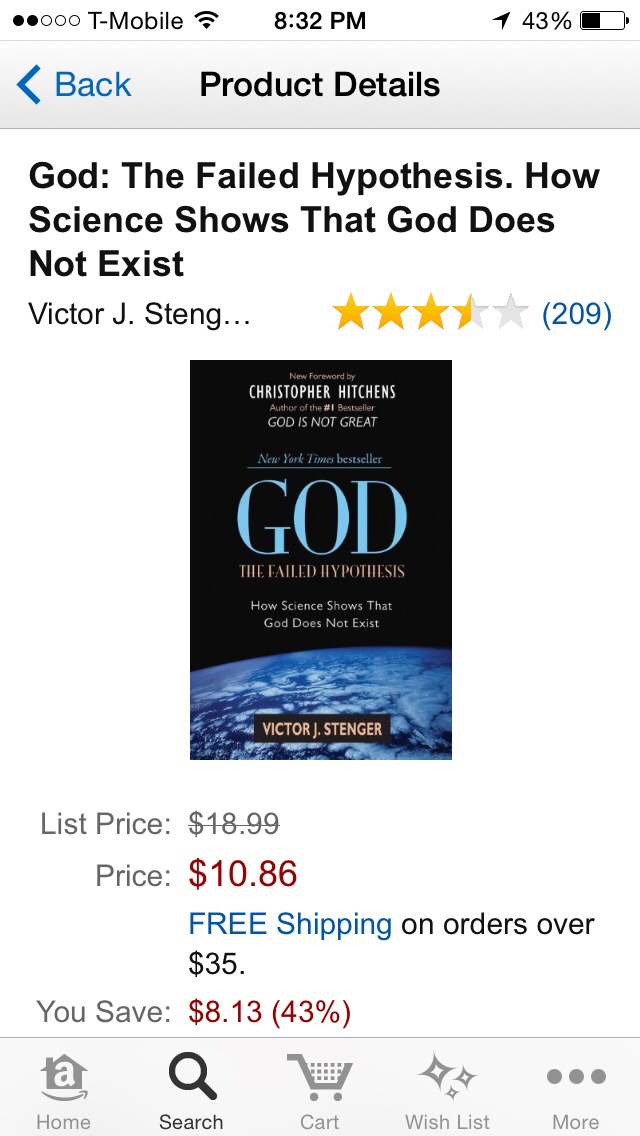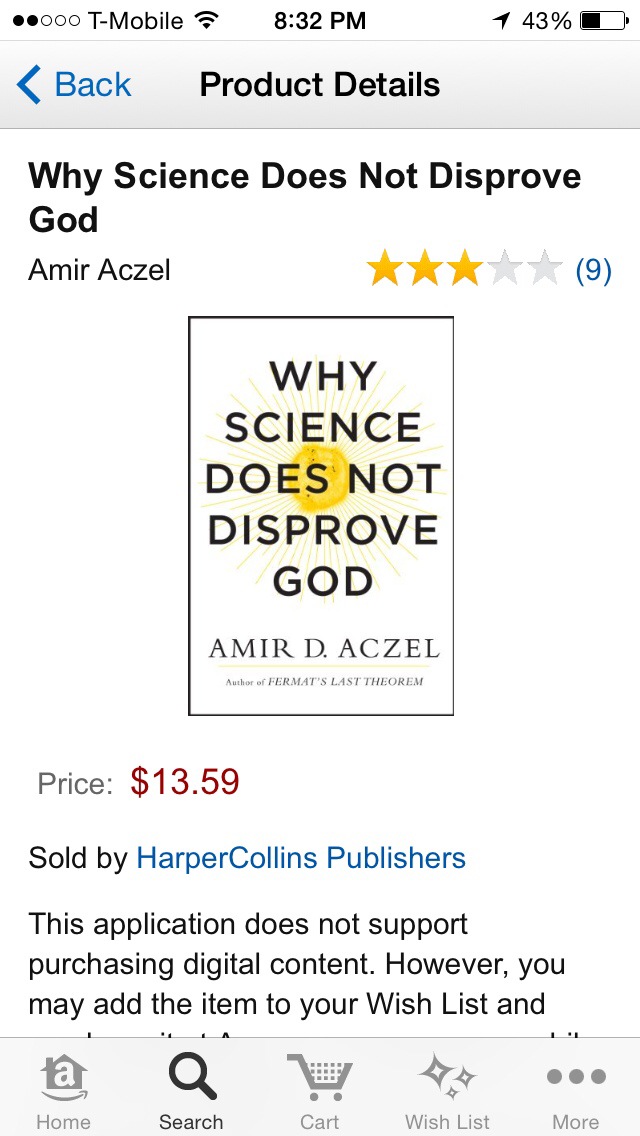How Can God Be Real, Good and Powerful When Bad Things Still Happen?
I remember the setting vividly: It was the summer of 1991, and I was spending three weeks in England at RAF Upper Heyford during the summer before my senior year at the Air Force Academy. Highlights of that trip included visiting Oxford University, Westminster Abbey in London, and getting a ride in a F-111 fighter jet– breaking the sound barrier briefly over the North Sea. I was eating breakfast one morning in the mess hall, when an Amy Grant song came on the cafeteria PA system. I don’t remember the exact song, but I think it was from her “Heart in Motion” album that had been recently released. The song had a lyric about “everything good coming from God.” I was struck by how unrealistic that seemed: How could people ascribe only the good things to God and not the bad things, if God is both omniscient and omnipotent?
I was raised in a Presbyterian church attending family, and I professed faith and joined our church as expected at the conclusion of “communicant’s class” in 8th grade, but it wasn’t until pilot training when I was 23 years old that I had a true “come to God” moment which was transformative for my personal faith. Eating my eggs and bacon in the chow hall at Upper Heyford that morning, I don’t think I had anyone to discuss these ideas with, but they made a vivid impression in my mind which persists today. Unlike my 20 year old self, however, I have better answers for this important and perhaps eternal question which Amy Grant encouraged me to ask:
How can God be real, good and powerful when bad things still happen?
Yesterday our family was almost involved in a very dangerous and destructive high speed automobile chase in downtown Tulsa, Oklahoma, and I posted about it on Facebook afterward. In the post, I gave thanks to God that we were not injured. Someone posted in reply, “Why didn’t God protect the other people who were involved in the accident?” I shared a brief response, but didn’t have time then for a more extended answer which this question deserves. This post is my attempt at that longer response.
When we hear the news which is almost universally filled with stories of tragedy, crimes, war, and people generally acting poorly toward each other, it can be easy to be pessimistic. Bad events happen every day. The world is filled with darkness. How can this make any sense, alongside a conception that a supernatural, creative force in the universe exists who has the power to intervene in human affairs? Why would God act to save people in some cases, but appear not to act in others?
We can ask this question in the specific circumstances of our own lives, or as we look at the broad brushstrokes of history. Why did my wife lose her husband to cancer when she was just 26? Why did my friend’s father commit suicide in 1989? Why did Hitler and the Nazis kill millions of Jewish people during the Holocaust? Why did whites almost exterminate native people when they came to the Americas in the 1500s onward?
There are a lot of things I don’t know and won’t claim to know, but here are some insights I’m confident of today which help me face these questions and make sense of them.
- I know God exists, is real, and responds to my prayers because of an ongoing relationship I have with him, as well as specific things he has done in my life which “he has given me eyes to see.”
- I do not know how God decides when and where to intervene in human affairs and the events of planet earth, but I strongly suspect that is a divine mystery we will never be able to fully comprehend in this life.
- I know that when we choose to seek God and ask Him to reveal Himself to us, He answers and responds. God communicates to us through our prayers, through His Word shared in the Bible, and through other people. There are many ways we can be led astray and down ill-conceived paths if we seek “religion,” but if we seek God through the power of his Holy Spirit I know he can and will respond to reveal Himself, His nature and His truth to us.
When we are faced with bleak tragedy in life: the loss of a loved one, the loss of a life’s dream, a crippling injury, or something else, we sometimes come to this choice more directly and abruptly than at other times in life. Will I choose to believe in God and his goodness, or will I reject God because the circumstances of my life are simply too bad to imagine that a loving God would ever allow to exist?
This is the step of faith. Faith is believing when I cannot see, and trusting when I cannot know the outcome. Faith is a gift from God, but it is a gift we can ask for and receive, just as he is gracious to give us all good gifts. The fruits of His spirit are good:
But the fruit of the Spirit is love, joy, peace, forbearance, kindness, goodness, faithfulness, gentleness and self-control. Against such things there is no law. (Galatians 5:22-23 NIV)
Amy Grant asks and answers this same question about which I am writing in her song, “Ask Me.” God does not always answer our prayers in the ways we expect or want. God is not a vending machine. God DOES promise to always be with us and never forsake us, even when the darkness surrounds us and we are overwhelmed with fear, pain, and sorrow.
Be strong and courageous. Do not be afraid or terrified because of them, for the LORD your God goes with you; he will never leave you nor forsake you. (Deuteronomy 31:6)
I have experienced those emotions in my life, and God has walked with me through those dark valleys. Those experiences have strengthened my faith, once feeble and timid, to the point today where I see and acknowledge His goodness when it is manifested in my life.
Evil exists in the world, and yes, God has allowed that evil to remain. But that is not the final state for humanity, and in the end, evil does not win out. As we learn in the Bible, the existence and persistence of evil is closely tied to our human pride. And even though evil may seem to triumph at times in this world, God has overcome evil and the world through his Son, Jesus Christ, whose life and teachings serve as a blueprint for our actions as Christian believers.
My encouragement to you, if you have found this post and are struggling with questions about God’s existence and his goodness, is to seek Him. Seek God through prayer, and seek Him through your own reading of the Bible. Start with the Gospel of John. Seek God through the counsel of trusted friends whom you respect, and who profess faith in God and Jesus Christ.
Pray to God that he will give you eyes to see and ears to hear. Many who have heard and hear today the words of the Lord do not comprehend them, but he offers the promise of understanding and of FAITH to those who seek Him. As we read in Matthew’s gospel:
‘The disciples came to him and asked, “Why do you speak to the people in parables?” He replied, “Because the knowledge of the secrets of the kingdom of heaven has been given to you, but not to them. Whoever has will be given more, and they will have an abundance. Whoever does not have, even what they have will be taken from them. This is why I speak to them in parables: “Though seeing, they do not see; though hearing, they do not hear or understand. In them is fulfilled the prophecy of Isaiah: “ ‘You will be ever hearing but never understanding; you will be ever seeing but never perceiving. For this people’s heart has become calloused; they hardly hear with their ears, and they have closed their eyes. Otherwise they might see with their eyes, hear with their ears, understand with their hearts and turn, and I would heal them.’ But blessed are your eyes because they see, and your ears because they hear. (
I pray this day God would give us, as seekers of His truth, ears to hear, eyes to see, and hearts to understand his goodness.
Amen.

